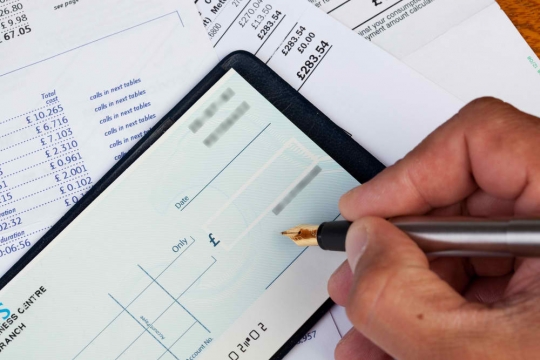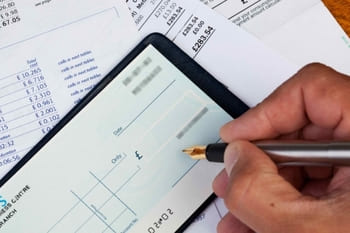A business current account is an essential part of running a business, so it is important to choose an account that is convenient and affordable.
This guide to business current accounts will help you to choose an account that is well suited to you and your business.

Why You Need to Choose Carefully
If you run a business it is important to find a business current account that is suited to your business’s needs. The ideal business account is efficient, convenient, cheap and preferably local.
However, that isn’t all that you need to look for. Depending on the needs of your business, you may also need to find an account that offers insurance, loans, mortgages or a business deposit account.
If you want to find an account that well suited to you, take the time to sit down and think about what you want from your business current account. Think about fees, interest rates and loyalty rewards, but also think about the goals of the bank and the goals of your business. The relationship you have with your bank may span decades, so it is important to choose a supportive bank with similar ideals.
You will already have a personal finance account with a bank, but that bank may not be the best bank for business clients. Here are five things that you should consider before choosing a bank.
Check the Standing Charges
Some banks charge businesses rates for banking with them. The rates may be monthly, quarterly or annually, and the charge may cover transaction charges, but you could also be charged for both. When you are comparing accounts take the time to think about how often you will use the account and make sure to check if there are any standing charges. If you will be making a lot of physical transactions it might be best to choose an account that charges for standing orders but doesn’t have transaction fees, and if you mostly make and receive payments online it may be best to choose an account with transaction charges and no standing charges.
Check the Transaction Charges
Lots of banks have transaction charges for credits and debits, but they vary between banks. Some banks only charge for physical transactions such as processing a cheque or a cash payment, whereas others only charge for automated payments such as direct debits. You must think carefully about which accounts will help you to save money and which won’t, so that your business current account doesn’t end up costing too much.
There are also lots of ways that you can lower the cost of transaction charges. One of the main ways to reduce costs is to make all payments electronically, as many banks don’t issue a charge for electronic payments. It is also useful to make sure that you know what the limits are on your account. Many people face huge charges if they are overdrawn, even if they are only withdrawn by a few pennies. Finally, you should automate as many payments as you possibly can so that you don’t have to constantly remember dates and payment amounts.
Check the Interest Rates
Most business accounts contain some extra funds, so it can be beneficial to choose an account that pays interest back to the customer. Some companies choose to transfer their extra funds from their business current accounts to an expansion fund, which means that they earn a significant amount of interest. If you want to do something like this try to set up both accounts with the same bank, as it makes it easier and quicker to make payments between the two accounts.
Check for Introductory Offers
Most banks include introductory offers for new business current accounts customers, which can reduce the overall costs. This can be very useful for smaller businesses and startups who don’t have extra money to spare. Speak to the banks to see what offers are available to you, but make sure to check that the bank treats loyal customers well too. You don’t want to choose a company that will be more expensive in the long-term!
Check for Good Customer Service
Most business owners don’t like visiting the bank, but sadly it is an essential part of running a business! Sometimes you may need to cash a cheque or a payment, and you may also need to arrange meetings with the bank managers to discuss your long-term business plans and goals. Make sure that you choose a bank that has good customer support or a dedicated small business centre that works with business owners. This will make it easier for you to keep in regular contact with your bank, and it will also make it easier for you to approach the bank if you encounter problems.






